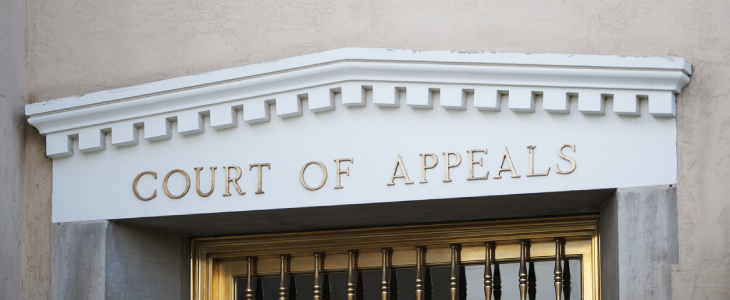After being convicted of a crime in Illinois, you talk with your trial attorney and begin to suspect that mistakes were made. Perhaps prejudicial comments were allowed into the record, or the judge allowed unreliable evidence to shape the verdict. Regardless, you start to realize that your trial was not conducted fairl, and you might have obtained a far different outcome had it been. You start discussing an appeal.
The next steps you take will prove critical in protecting your rights, your freedom, and your reputation for years to come. Yet many appellants make avoidable mistakes that jeopardize their appeals. At The Keleher Appellate Law Group, we understand what’s on the line with your criminal appeal. That’s why we take a personalized approach to each client we represent. Here, we examine some of the most common errors in a criminal appeal and how to prevent them.
Mistake 1: Failing to File Your Appeal on Time
An appeal begins with filing a Notice of Appeal in the trial court. But you have a very limited amount of time to do so. The deadline is only 14 days in federal court.
To protect yourself, do not delay reaching out to an experienced appellate attorney who is ready and able to help. Your lawyer should specifically be able to handle either state or federal criminal appeals and should have the time available to dedicate to your case.
Mistake 2: Overemphasis on Emotional Issues
Appellate briefs are dry in the sense that they are focused solely on legal arguments and the evidence that supports them. Whereas in trial court there is a proper role for emotional considerations, there is little if any room for them on appeal. That’s because the appellate court isn’t trying your case a second time, it is looking for procedural and factual errors that occurred during trial.
Avoiding this requires retaining a law firm that understands what sorts of arguments need to be made, how to back them up with evidence and legal precedent, and how to develop a compelling case for your appeal.
Mistake 3: Focusing on the Wrong Kind of Evidence
It should be emphasized that appellate courts do not generally review new evidence during an appeal (unless it was unavailable during the trial) because, as mentioned above, an appeal is not a new trial. But you do need evidence that a mistake was made during tthe rial. The record on appeal will provide this because it documents, via a transcript, exactly what happened during the trial.
To make sure you are presenting good evidence and arguments, rely on your appellate attorney to spot mistakes in the record on appeal. The worse the mistake, and the more prejudicial it was, the better.
Mistake 4: Ignoring Procedural Requirements
Appeals are highly procedural in nature, and there are strict rules, timelines, and standards that must be met for nearly everything that is filed and presented in court. The Federal Rules of Appellate Procedure, for instance, contain nearly 80 pages of complex rules. If you miss one of these, you could irreparably damage your appeal.
You should certainly have experienced appellate counsel who is adept at handling all aspects of your criminal appeal. However, it would also be a good idea to familiarize yourself with the state or federal appellate procedural rules so you can present your strongest case.
One Mistake Not to Make: Failing to Hire an Illinois Appellate Law Firm
Perhaps the biggest error that you could commit on appeal is handling it yourself. With the deadlines, rules, and standards that apply to every criminal appeal, you simply cannot afford to risk presenting a poor appeal. Instead, count on the experienced team at The Keleher Appellate Law Group. Call us today to get started.

